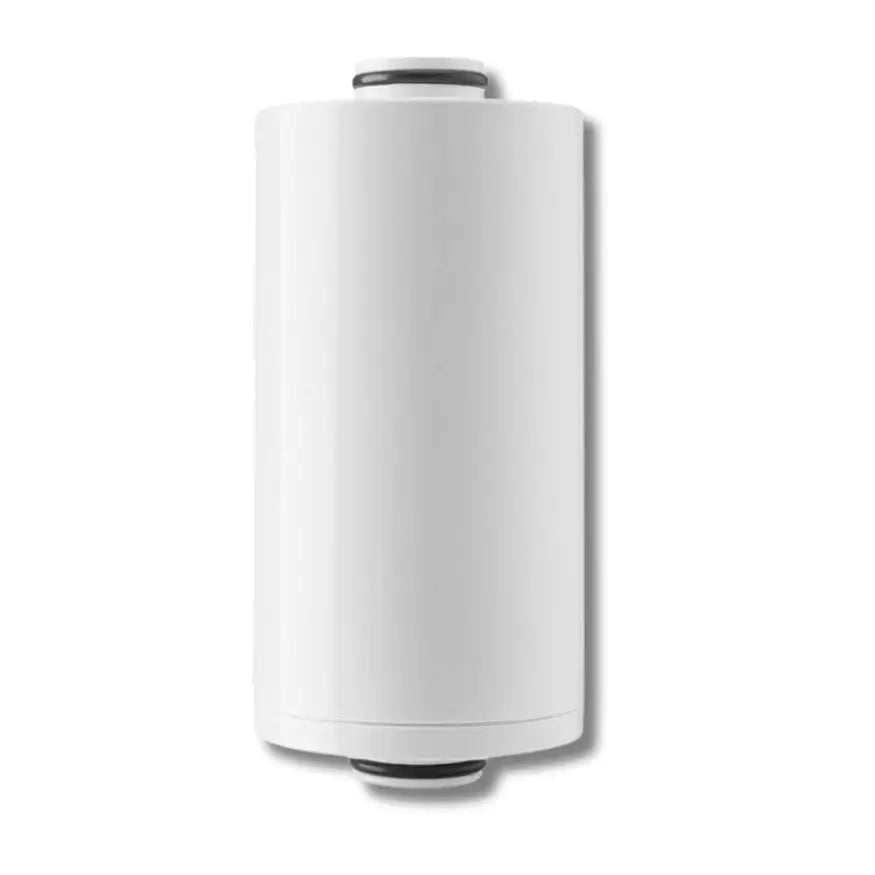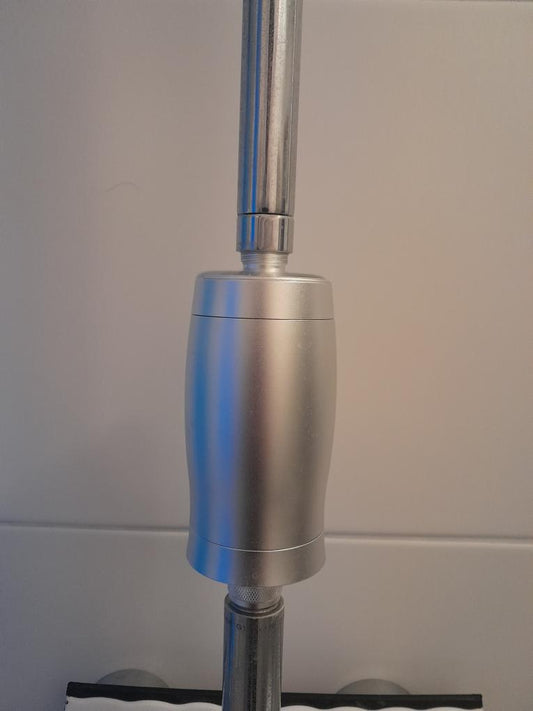Heavy metals in shower water can pose a significant health risk due to their toxicity, bioaccumulation in the body, and persistence in the environment. Understanding these contaminants can help individuals make informed decisions about their water quality and take measures to protect their health while bathing.
Research on the effects of heavy metals in shower water continues to evolve, with studies showing that exposure can lead to skin and hair problems. Public health agencies worldwide have set safe concentration limits for heavy metals, though these standards can vary by country and region.
This article explores the impact of heavy metals in shower water and suggests treatment options for ensuring water safety.
What are heavy metals in shower water?
Heavy metals are naturally occurring elements with high atomic weight and density at least five times greater than water. While some trace metals are essential for human health in minimal amounts, many heavy metals are toxic even at low concentrations.
Heavy metal contamination in shower water can lead to a range of skin and hair problems. Over time, these metals can accumulate in the body and interfere with normal biological functions, potentially causing both acute and chronic health issues.
Research indicates that areas with industrial activity or natural geological sources of metals may experience higher levels of contamination. Certain populations, particularly children and pregnant women, may be more vulnerable to heavy metal exposure through shower water.
Common sources of heavy metals in shower water
Heavy metals can enter shower water from several sources:
-
Natural geological formations
-
Industrial discharges
-
Agricultural runoff
-
Mining operations
-
Aging plumbing and water infrastructure
-
Atmospheric deposition
Shower water from various sources can be affected by heavy metals, including municipal supplies, private wells, surface water (lakes, rivers), and groundwater.
Although municipal water treatment may address some contaminants, not all heavy metals are effectively removed. As a result, shower water could still pose risks even if the water is safe to drink.
Do heavy metals in shower water actually harm health?
Extensive research has examined the effects of heavy metal exposure through shower water. Though individual susceptibility varies, studies consistently show that chronic exposure to heavy metals through shower water can cause skin irritation, hair damage, and other health concerns.
Arsenic
Arsenic-contaminated shower water can lead to skin problems, including rashes and irritations. Long-term exposure is linked to a higher risk of skin cancer, and inhaling arsenic vapors while showering could increase the risk of respiratory issues.
Lead
Lead exposure through shower water is particularly harmful to children, as it can cause neurological problems, affecting brain development and leading to cognitive issues. Even low levels of lead exposure have been shown to impact learning and behavior.
Mercury, Cadmium, and Other Metals
Mercury and cadmium in shower water can cause skin irritation, while prolonged exposure to these metals could lead to kidney damage and other systemic health issues. These metals can also bioaccumulate in body tissues, resulting in long-term health effects even from low-level exposure.
How to detect heavy metals in shower water
Detecting heavy metals in shower water is essential because they are typically odorless, colorless, and tasteless. Several methods can help identify their presence:
-
Water Quality Reports: Municipal water suppliers may provide annual reports detailing contaminants, including heavy metals.
-
Home Testing Kits: These kits allow homeowners to screen for common metals such as lead, copper, and mercury in shower water.
-
Professional Laboratory Testing: For the most accurate results, samples can be sent to certified laboratories for comprehensive analysis.
-
Visual Inspection of Plumbing: If your home has old plumbing, it's essential to check for potential sources of contamination, such as lead pipes.
Treatment options for heavy metal contamination in shower water
Several effective methods can remove heavy metals from shower water:
Filtration Systems
Filtration systems designed for shower water can effectively reduce heavy metal concentrations. These systems are specifically designed to filter out harmful contaminants while ensuring the water flows freely.
-
Activated Carbon Filters: Effective for removing mercury and some other metal compounds.
-
Reverse Osmosis Systems: Capable of removing most heavy metals, including arsenic and lead.
-
Ion Exchange Systems: Particularly effective for lead, cadmium, and copper.
-
KDF Media Filters: Use a redox process to remove lead, mercury, and other metals.
Alternative Treatment Methods
Other treatment methods for heavy metal contamination in shower water include:
-
Biochar Adsorption: Biochar derived from agricultural waste can bind heavy metals and remove them from shower water.
-
Chemical Precipitation: This method is primarily used in large-scale water treatment but can also be used to treat home water supplies.
-
Electrochemical Methods: New technologies that use electrical charges to remove metals from water.
How to address heavy metal concerns in shower water
If you're concerned about heavy metals in your shower water, consider these steps:
-
Test your water for heavy metals using home testing kits or professional laboratory services.
-
Install a filtration system designed specifically for shower water. Ensure it is certified to remove the contaminants present.
-
Check your plumbing: If your home has old pipes, you may be at risk for lead or copper contamination. Replacing aging plumbing can help reduce exposure.
-
Consult with water quality experts to determine the best treatment options based on the specific contaminants detected in your water.
Summary
Heavy metal contamination in shower water is a growing concern due to its potential to cause skin irritation, hair damage, and long-term health effects. Filtration systems and regular water testing are key to ensuring safe shower water. By understanding the sources of contamination and the treatment options available, you can take proactive measures to protect your health and well-being.
Learn more about ensuring safe shower water here.





